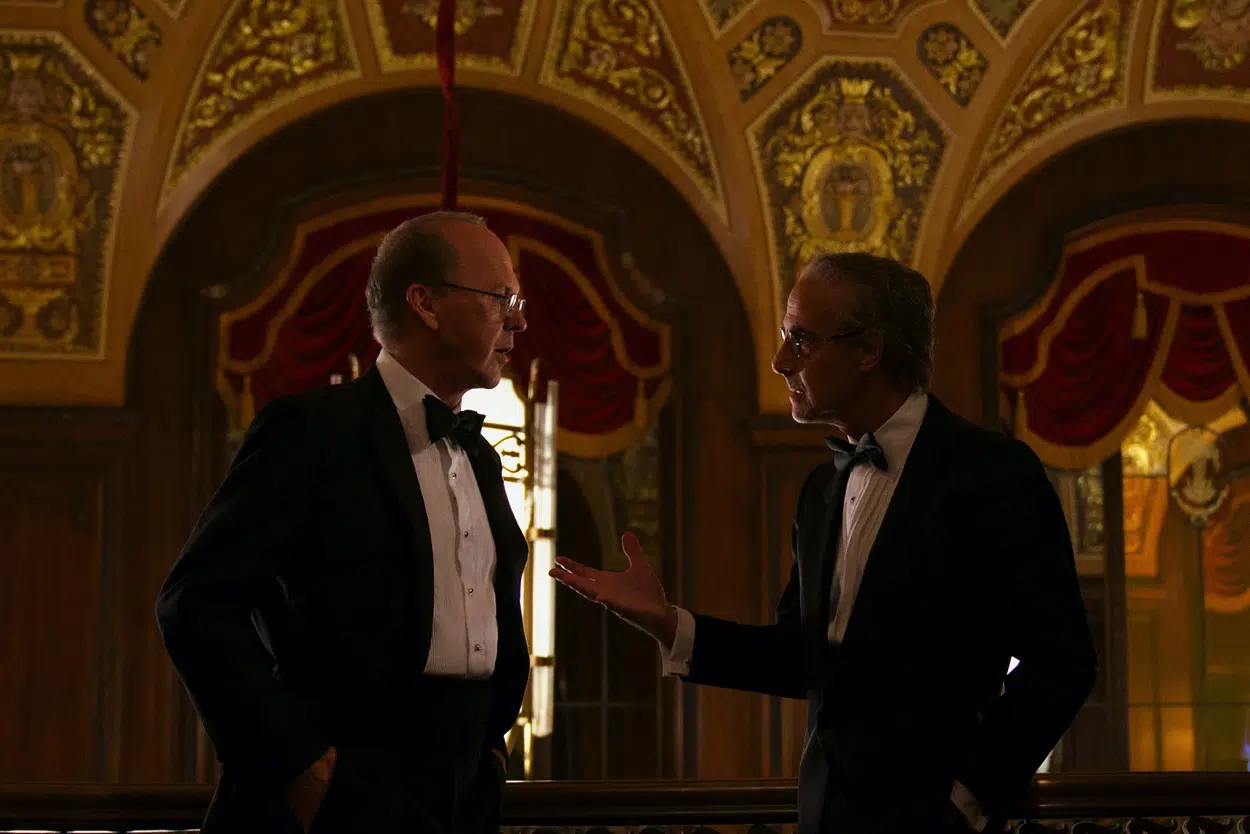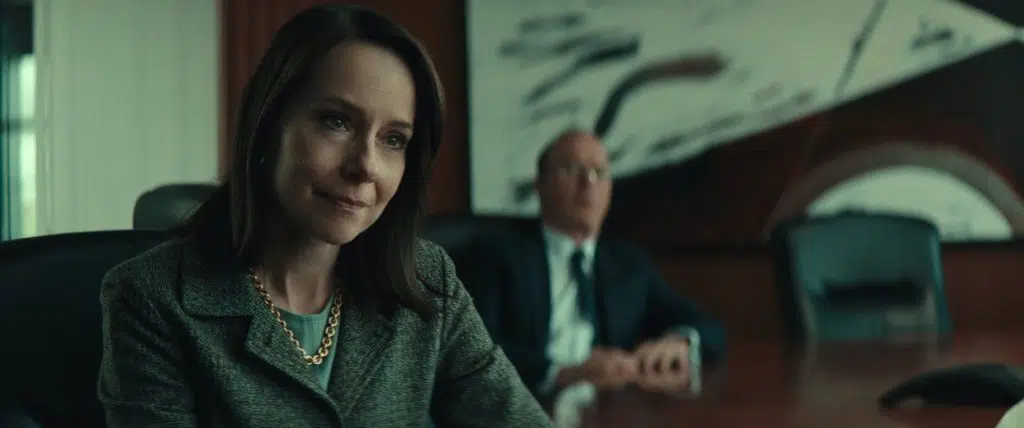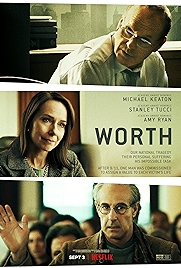Worth is a film about 9/11 and its aftermath and if you were about on that day and old enough to take in what was going on you might feel there’s little reason to watch it… The shock was so intense and keenly felt that 2001 still seems so present, no reminder necessary, thanks. There might be political qualms too (the endless War on Terror, the ill-justified war in Iraq). And there might also be the suspicion that Worth is going to be… worthy.
While it’s never going to put all those concerns back in their box, Worth turns out to be an adroit, astute, brilliantly conceived and played procedural drama in the All the President’s Men or Spotlight ballpark, which rather than taking in the full sweep of that day, focuses largely on one man, Ken Feinberg, the lawyer who took on the job of running the fund that was set up in the aftermath of 9/11 to compensate the victims.
Feinberg (Michael Keaton) is a lawyerly guy first glimpsed teaching a class headlined What Is Life Worth (the movie’s original title), and making clear to his students and us that it’s not an easy question to answer once you’ve gone beyond simple loss of life – loss of earnings, dependants, age at death, expected trajectory etc can all make the payout vary massively.
In another bit of swift setup, Feinberg is also in the room when the implications of the government-run compensation scheme mandated by the hastily passed Air Transportation Safety and System Stabilization Act are being discussed. Woth makes clear that this act was designed to prevent airlines from being litigated to the point of bankruptcy, which was on the cards, rather out of some noble desire to compensate the victims – corporate capitalism at its most bare-faced. A dry man but a decent one, the dutiful Feinberg volunteers himself to do the job no one wants, to be the “special master” of the fund, which will tally up what a life is worth – a waitress at Windows on the World in the World Trade Center versus a fireman with the NYPD versus a high-net-worth individual.
The job of the “special master” is to keep the payouts low and resist the lobbying of lawyers representing rich guys. But he’s also allowed to apply his own discretion when a special case presents itself. The story of Worth is the story of Feinberg’s dawning realisation that every case is a special one and that the “formula” he’s using to come up with compensation amounts might lack humanity.
Humanity personified arrives in the shape of the finicky, polite, quiet but resolute Charles Wolf (Stanley Tucci), a man who’s going to push Feinberg off his base of certainty, an opera-lover (like Feinberg) who lost his wife in the attack and who runs the Fix the Fund campaign on the World Wide Web, as we were still calling it then, to campaign against Feinberg and his “formula”.
There are other players, like Tate Donovan as the slippery lawyer lobbying on behalf of the wealthy for an even bigger slice of the pie, and Amy Ryan as Feinberg’s right hand woman, conscience and touchstone in all matters emotional. But really this is about the battle for Feinberg’s soul. Is he a dry, number-crunching government wonk, or a good guy who might have found himself on the wrong team?
Max Borenstein has written a ruthlessly structured film that doesn’t give too much screentime to the likes of Donovan and Ryan, even less to Feinberg’s other co-workers, Priya Khundi (Shunori Ramanathan) and Darryl Barnes (Ato Blankson-Wood), and Worth is all the more engrossing for it. It’s Keaton first, as good as you’ve ever seen him, Tucci (another fantastically humane Tucci performance) a long way second, then Ryan… and the rest trail along in the wake adding sprinkles but not disturbing the narrative.
With her feature debut, 2014’s Little Accidents, director Sara Colangelo demonstrated that she was a big talent who could wrestle a multi-stranded procedural drama into being and get great performances out of her actors while doing so. It’s a case of same/same here, though Worth comes with the added sensitivity of the atrocity itself. Sensibly, Colangelo keeps visual references to 9/11 off the screen. What she does keep in our faces, though, are sombre reminders of the paticularity of the tragedy – this claimant has cancer and will soon be joining her dead husband in eternity; this one likes fishing; this one is gay and the relationship he had with his dead partner isn’t recognised by law; this one didn’t realise her dead husband had another secret family. And so on.
Big political points are largely ducked, or they’re put up on screen and left there for the audience to draw its own conclusions. The relationship between money and lobbying and justice in the USA, for instance. This is more about the fight for one man’s soul, rather than the redemption of the US government’s legal justice system. More generously, it also demonstrates that the existing system can yield when it’s administered with a bit of heart. Which will either fill you with a warm glow about the adaptability of the system or make you puke.
© Steve Morrissey 2021


